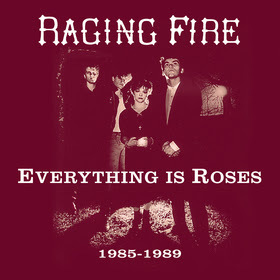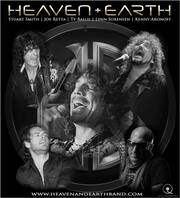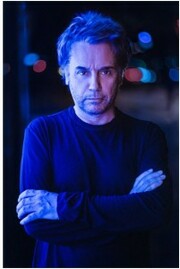New York, NY (Top40 Charts) Nashville-based rock band Raging Fire is celebrating the 30th anniversary of its first record, A Family Thing, by releasing its entire catalog - including previously unavailable studio recordings, alternate takes and live tracks - to digital platforms and on a 24-track compilation CD. The October 6, 2015 release date also includes issuing a limited-edition, 11-cut vinyl album of favorite tracks.
Raging Fire burned a distinctive musical path through the mid-to-late 1980s. First catching a spark in 1984 in the vibrant Nashville rock scene, the band quickly gained a national following, opening across
America for the Cramps, Gun Club, the Replacements, and many others. In 1988, they were voted one of America's best unsigned bands, along with the Pixies, in a CMJ reader's poll.
In the early 1980s, the Nashville rock scene began attracting attention when Jason & the Scorchers exploded to international fame by blending punk rock with country music. A score of brash indie-rock bands surfaced in Nashville in their wake, inspired by the Scorchers' bold, uncompromising style. There were country-punk acts, power pop bands and power-chord thrashers. And there was Raging Fire, in a category of one.
While the Scorchers merged the
Sex Pistols with Hank Williams, Raging Fire merged the
Clash with Tennessee Williams. The band of four strong personalities — Michael Godsey on guitar; Mark Medley on drums; Les Shields on bass; Melora Zaner on vocals — carried all the primal power of their influences, from the Who and
Led Zeppelin to X and the Cramps. But the raw power was offset by literate, Southern-gothic lyrics and the aggressively feminine mystique of Zaner's voice and can't-take-your-eyes-off-her charisma.
Zaner offered the rare spectacle of a petite yet powerfully present female in a male-dominated music scene. The band gave up nothing when it came to force and fury; the power chords of "Everything Is Roses" and "Knee Jerk Response" matched the sonic rage of any leather-clad band stomping across America. But Zaner came on as a mix of
Blanche Dubois and
Scarlett O'Hara, an outwardly delicate creature with a strong inner core who proved a match for the Rhett Butlers and Stanley Kowalskis pounding away around her. Listen to the psychological conflicts and layers of emotions in "A Family Thing" and "The Morning in Her," and you hear the sound of a generation of young woman dealing with the combustible cocktail of sexual freedom, contradictory desires and aggressive, borderline violent, lust that ran through punk culture in the 1980s.
Zaner's natural sensuality and the way her lyrics probed the tension of male-female dynamics distinguished Raging Fire from their peers. The other members had equally unique styles. Godsey drew on Pete Townsend's style of single-note melodic balladry and violent barre chords, while adding a dash of Steve Jones belligerence and
George Harrison tenderness; Medley played drums like he was pummeling an enemy, in the manner of Bonham and Moon, coming across as a lead instrument as much as Godsey's guitar; and Shields (and the series of bassists who replaced him over the years) set down a thumping foundation, providing the solid floor for everyone else to shine and scuff.
Raging Fire's distinctive sound wasn't an accident. "The first night I met Michael, at a party, we started talking about music," Zaner said. "He listened to some songs I'd written for a band I was in (Color Flag). He said I should leave and form a band with him and Mark. I told him I'm not a punk singer; I don't scream. I identified with punk music, I just didn't sing that way."
Godsey didn't back off. Instead, he got excited about the idea of creating something with more variety, more dynamics, and more complexity than the usual punk fare. "From the start, we knew we were onto something new," Zaner says. "We wanted to combine storytelling with the punk music we loved. We wanted to bring in blues and pop melodies. I don't have a big, huge voice, but I thought I could be a stylist. I thought of Patti Smith, one of my heroes, and Siouxie and the Banshees, and X and Blondie, but also Billie Holiday and
Little Esther. I thought there was something valid there."
The men in the band came from the loud-and-brash camp where everyone turned the amps up to 11. Godsey and Medley helped form Nashville's first hardcore band, the Committee for Public Safety (or CPS), in 1982. On tour a year later they were warmly received in Washington, D.C. (where members of Minor Threat were in the audience), and other East Coast cities. Les Shields, who joined Raging Fire on bass in January 1984, had been vocalist in the Ratz, one of Nashville's first punk bands.
The group initially performed as Ring of Fire, until they found out another established band used the name, so they altered it to Raging Fire. By then, they already were touring the Midwest and Southeast. Ring of Fire's third show was opening for the Cramps in Chicago. Their first show as Raging Fire, in the spring of 1984, was opening for L.A. act the Gun Club, another influence on the band's bluesy, seductive sound.
Raging Fire drew fervent audiences in their hometown, and beyond. They toured constantly. The band's initial EP, 1985's A Family Thing, drew raves across America. "A band so determined to stake out its own turf is a band to watch," wrote esteemed music critic Don McLeese, in the
Chicago Sun-Times. The Raging Fire song "Everything Is Roses" was chosen to open City Without a Subway, a compilation of Nashville bands from 1985. Later, after the release of Raging Fire's 1986 full-length album, Faith Love Was Made Of, the band was voted, along with the Pixies, one of America's best unsigned bands in a CMJ reader's poll, and featured on the 1988 CMJ/RCA compilation Ten of a Kind.
Record companies took notice. However, some A&R executives expressed interest in Zaner, but wanted to develop her as a solo act. Other talent scouts loved the band but said they didn't know how to market their unusual style, or said they had trouble selling a punk band with a female singer. One top major label A&R executive promised to sign the band, only to have the deal killed by a senior executive, who had never seen the group.
Shields was the first to leave the group, in 1985. Lee A. Carr initially replaced him, then John Reed held down the bass slot for a couple of years. In mid-1988, Rusty Watkins was on bass, and the band had added Jerry Dale McFadden (now a member of the Mavericks) on piano and Hammond B-3.
A new set of recordings showing the band's growth circulated through the music industry. The band held endless meetings with record executives, producers, song publishers, attorneys, etc. Praise was always extravagant, promises always offered — and left unfulfilled. Medley recalls how momentum built quickly at the start, but then remained at the same plateau for a few years. They felt the music kept getting better, but their relationship with the music industry grew more frustrating.
The band's discussions about whether to continue or not received an answer when Godsey was accepted at the Parsons New School of Design, in New York. Godsey and Zaner had become a couple, and the two moved to New York. "It really hurt to leave the band behind," Zaner said. "I went through a big depression and didn't play music for five years."
Medley went on to play drums in various other Nashville bands. Godsey and Zaner eventually began writing songs again. They worked on music in New York, and later in Seattle, after Zaner became a top graphic design executive. Microsoft eventually put her in charge of design in Shanghai, China, where she and Godsey started a label, recording their own music and that of young Chinese rockers.
Shortly after the band dissolved, the distinctive sound they developed began garnering attention in the hands of others. The grunge of
Nirvana and
Pearl Jam, and the Riot Grrl sound of Bikini Kill and Sleater-Kinney, drew on the raw music and sensitive storytelling that had been Raging Fire's territory. "The sound everyone said they didn't know how to market suddenly became one of the most popular styles in the world," Medley said.
Zaner noticed the similarities too. "I kept having people tell me they thought they heard us on the radio," she said. "It turned out to be all these bands that sounded a lot like us. To me, at least, it said we were onto something. I look back at it all very fondly now."
In the quarter century since the band ended, the core members all went on to other successes. Medley is a curator, an artist, and still writes and plays music. Shields is a lawyer. Godsey became a record producer, an independent record label co-owner, an artist and a photographer, before dying of a heart attack in Shanghai in 2012. Zaner, after her stints as a top design executive for Microsoft in Seattle and Shanghai, and for Yahoo in Taiwan, returned to New York in November of 2014 to accept a similar top design post for JPMorgan Chase & Co.
"We all still followed our passions - that was something I think we took from working in Raging Fire," Zaner said. "There are things I wished had turned out differently, but I have no regrets."
























